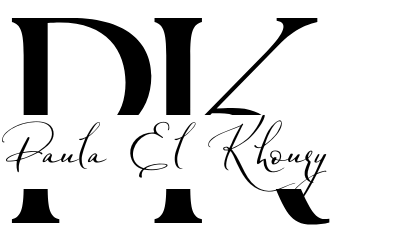Arab audiences and readers are savvy when it comes to using digital technologies, but journalism schools have been slow to adapt. Young Arab jour
Arab audiences and readers are savvy when it comes to using digital technologies, but journalism schools have been slow to adapt.
Young Arab journalism students are aware of the job opportunities that digital media present. Old-school journalists are also heading back to graduate schools to enhance their skills. They need to know about advances in data journalism, and how to edit photos, videos and audio footage.
The challenge for academia is clear: Journalism schools and professors need to assist the region’s aspiring and future-conscious journalists to thrive and survive in this atmosphere.
Take, for instance, one of the most interesting and recent changes engendered by the digital age: entrepreneurial journalism. Print journalism is in flux. Magazines are toppled as apps rise. Rather than mourning the loss of journalism’s “golden age,” enterprising journalists instead look for a gap in the market with a business-like mind. They identify a need and fulfill it with either innovative platforms or new funding models.
There are already several good entrepreneurial journalism projects taking place in the Arab world. Some are general-interest publications, but others are specific and cover topics often glossed over by more traditional media—gender issues, human rights, the environment, policy making and marginalized communities, for example. Interestingly, they also tend to cross borders with regional coverage, international contributors and the audiences they pursue.
The Legal Agenda is a good example. It publishes most of its content online but also releases quarterly print publications in Lebanon and Tunisia. It covers the process of lawmaking in the Arab world with an aim to make it understandable to ordinary citizens, not just legal experts.
Women are increasingly participating in these new ventures. They have proven themselves to be awesome media entrepreneurs. For example, the Arab Woman Platform, which two young female journalists launched in 2014. It is a successful example of “citizen journalism,” where articles from lay and experienced writers are selected, edited, and published in English or Arabic. Mandara Online, another example, was founded by an Egyptian female journalist in 2010 and gives a voice to the poorer population of rural Upper Egypt.
Journalism schools could do more to prepare students to launch their own news products like these. They could also help successful entrepreneurs to profit from the university environment through collaborations and discussions with students and professors about their experiences, challenges and development plans.
Yet despite the clear potential of entrepreneurial journalism, it is almost entirely absent from the journalism curriculum in Arab universities.
This needs to change if we want journalists in the Arab world to stay ahead of the game. But to do that we need to encourage journalism schools to collaborate with other departments on campuses: business, IT, sociology, the arts and humanities. We need to apply the famous “inter-disciplinary” approach—continuously praised and rarely practiced.
The methods and kinds of social analysis used by sociologists are needed in today’s Arab journalism because in this moment of historic social change, journalists find themselves addressing the civil society, just as sociologists always have.
Sociologists could help journalism students to enhance their observational skills by unraveling the social reality behind ordinary situations. A deep knowledge of social institutions (family, education, religion, and health); social inequalities (age, class, gender, and sexuality); and topics related to social interactions (work, friendship, love, and marriage, etc.) are myriad in sociology.
Some of the topics that journalists tackle will inevitably be controversial, and sociologists have a lot of experience in finding the data and conducting the surveys and interviews for these subjects. On a very practical level, sociology professors could teach journalism students how to approach and navigate the reporting of controversial stories.
Being able to explore these topics is particularly vital in the Arab world because of the long absence of any true freedom of speech.
When we talk about data journalism, it can be easy to neglect that we are discussing peoples’ lives and experiences hidden within the numbers.
There is now a fervent interest from journalists in the quantitative and qualitative methods of sociological research to deal with data analysis. Journalists need these skills to produce info-graphics and other data visualizations. Sociological know-how is now crucial for journalists because it could help them to be better cultural intermediaries and documenters of their time.
It’s a two-way street. Journalism schools and departments could offer training to other academics.
There are many sociologists who have interesting things to say about the world we live in, but shy away from sharing their work with audiences beyond the walls of the university. A large part of this is because they don’t know how to translate their work for non-experts. Journalists could help to train them in how to pitch their research to a reporter and properly communicate it to a lay audience.
Just as critically, we need to start teaching journalism programs in Arabic—the language of digital and social media in the region—but most universities are still teaching journalism in only English or French. This is certainly the case in the big-name universities found in Lebanon, the Gulf, Egypt, and some North African countries.
That has a knock-on effect; much of the hard-hitting journalism in the Arab world exists in English or French. And there’s a good reason: It isn’t as threatening to the authorities because it does not reach as wide an audience. Writing in a foreign language rather than Arabic is more likely to be tolerated by ruling Arab regimes.
If journalism wishes to have an impact in a region, it must be published in the language of its people.
English or French may be safe, but why bother if much of the population will never read it?
First published in:
https://www.al-fanarmedia.org/2018/03/journalism-schools-need-modernize-sociologists-can-help/

